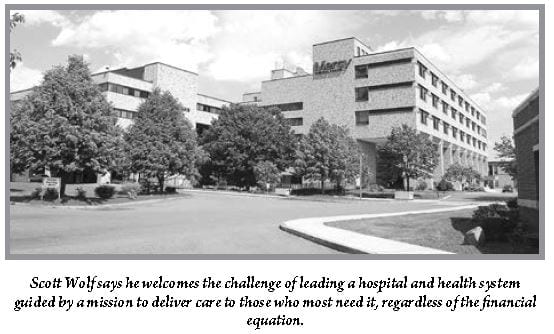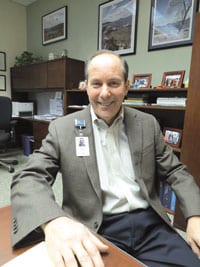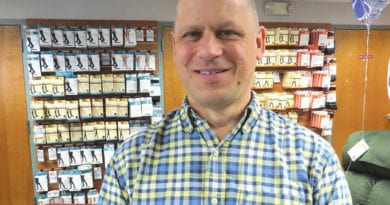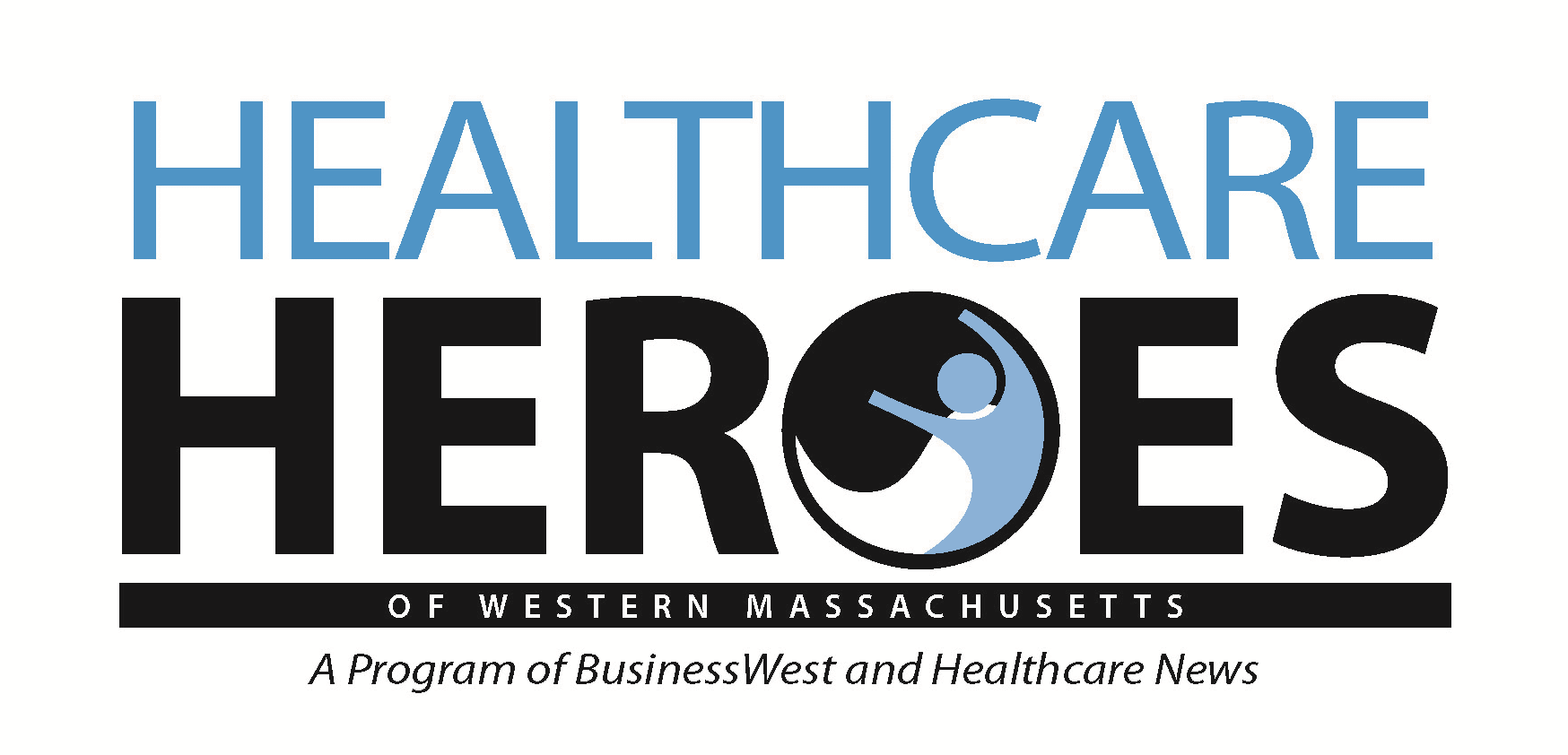A Holistic View of Healthcare Mercy’s – New President Takes a Progressive View
Dr. Scott Wolf says he brings to his job what he refers to as a “360-degree view” of healthcare.
That’s a phrase Wolf, the recently named president of Mercy Medical Center and the Sisters of Providence Health System (SPHS), would use early and often as he talked about his background, which blends direct care to patients — he’s a board-certified internist — as well as time spent working on population-health initiatives, the insurance side of the equation, and several roles within the broad realm of hospital administration.
Which means, he noted, that he can see matters from several different perspectives, including those who provide the care, as well as those who pay for it.
“I think every physician should spend a week in a managed-care office, just to understand what goes on beyond their practice,” he said of his time spent with Aetna as senior medical director of Northeast Patient Management. “It really gives the perspective from the payer.”
That was just one of several efforts he made to not only break down his diverse background in healthcare, but also explain its inherent value.
Here’s another one.
“When you think of how healthcare is transforming, with the growing focus on the patient experience, on outcomes, and as we emerge from a pay-per-service, business-focused approach to healthcare, and we evolve into this population-health era, these are the conditions where a physician-leader can excel,” he said, while explaining why more people with direct patient-care experience are now in senior management positions in healthcare. “Having a background in direct patient care really affords a physician leader the opportunity to have that perspective and be able to impact the operational aspects of care.”
Indeed, that full-circle view he described is enormously helpful, he told HCN, because these are extremely challenging times for all those involved in the delivery of healthcare — a time of immense competition, a broad host of financial challenges, and an intense focus on the patient experience.
“All of my experiences have helped me develop a very 360-degree view of healthcare,” he explained, “and the challenge we face on a daily basis of providing the highest-quality care in a very cost-effective manner, while all the while providing an extraordinary patient experience.”
Wolf has the additional challenge of leading a hospital, and a health system, guided by a mission to deliver care to those who most need it, regardless of the circumstances when it comes to profit and losses.
But that mission is what makes SPHS, part of the larger Trinity Health system, unique and such a pivotal force in the Western Mass. region, he said, adding that working in such an environment is quite satisfying.
“That’s what makes the job so rewarding,” he explained. “Everyone in this organization feels a responsibility to carry on the legacy of the Sisters of Providence. They live out our values — caring for the poor and the most needed — and that’s what really grounds us.”

For this issue, HCN talked at length with Wolf, who succeeded Dan Moen in his twin roles in January, about his new role at Mercy and SPHS, the challenging environment the system faces, and how that 360-degree view should help him as he steers the ship through some fairly treacherous waters.
The Big Picture
Traveling back in time to his days in medical school, Wolf recalled a period when was “teetering” as he pondered which specific path to take with regard to a career in healthcare.
“I was already accepted into a fellowship in pulmonary critical care,” he explained. “But I was developing an affinity for primary care, as opposed to subspecialty medicine, and as I thought about my future, I didn’t want to be restricted to one discipline; I really felt that my passion was in helping and addressing the needs of the whole person.”
Such a philosophy is likely a refection of his background — he’s an osteopathic physician, Wolf noted, adding that, while he’s had several employers during his career and a wide array of titles on his business cards, this desire to tend to the whole person has been what amounts to a constant throughout.
Chronicling those career stops, Wolf started with his stint at Hartford Hospital, where he was chief medical resident, as director of Clinical Operations in Ambulatory Medicine. In that role, for which he wore a number of hats, his accomplishments include development of a strategic plan resulting in the implementation of a primary-care model of healthcare delivery, with outcomes demonstrating improved patient care, increased practice efficiency, and improved patient satisfaction.
And it was during this time that Wolf, and the industry in general, began what has been a gradual shift toward population health, or “pop health,” as he called it. He became involved with research involving populations with asthma and diabetes, and the in the course of doing so was introduced to individuals working for Pfizer Health Solutions Inc., a subsidiary of the pharmaceutical giant, and this eventually led to his first serious career shift.
Indeed, after earning a public health degree in population health, Pfizer presented him with an opportunity to take on a leadership role in the design and implementation of disease-management programs.
“I made a bold move to leave clinical medicine and my comfort zone of dealing with patients and jumped into corporate America,” he explained, adding that his four years at Pfizer provided learning experiences on a number of levels — not to mention travel around the world — through his work as medical director of state initiatives, such as the “Florida: A Healthy State” program, which, over its first four years, improved the health of more than 190,000 Medicaid beneficiaries based on behavioral, clinical, and utilization metrics, while generating savings and investment of $139 million.
By 2004, Wolf was ready to significantly reduce his frequent-flyer miles and make another bold move, this one to yet another branch of healthcare, if you will — the insurance industry.
That aforementioned role as regional medical director with Hartford-based Aetna involved mostly a focus on healthcare-utilization services across the Northeast.
As noted earlier, he experiences in this realm were eye-opening.
“It was an incredibly enlightening experience,” he told HCN. “It gave me insight into the business side of healthcare, from understanding utilization to understanding the many challenges payers face in helping to provide appropriate levels of care but do so in a cost-effective environment.
“When you’re sitting on that [managed care] side, you’re exposed to an incredible amount of waste that is delivered in our system,” Wolf went on. “There’s an extraordinary amount of duplication and superfluous tests that are done.”
Wolf said he considered such insight into that side of the business to be a prerequisite of sorts for effective service in the higher ranks of hospital management, so, three years after arriving at Aetna, he decided to go back to the realm where he was most comfortable and most satisfied.
It took just one visit in early 2010, by his recollection, for him to determine that Mercy Medical Center was where he wanted to continue his career in healthcare in the role of chief medical officer.
“From the minute I walked in the door and experienced my first day visiting with key members of leadership at the time, I knew right away that this was the place for me,” he explained. “The commitment to the mission was palpable. The commitment to each other, and just the reverence that was expressed in the hallways among colleagues and patients, was such that I knew that this was the place I wanted to be.”
Healthy Perspective
As he talked about the changes that have come to the healthcare field in recent years, and especially what would have to be described as an even sharper focus on the patient experience, Wolf summoned a name Millennials would probably have to Google to fully appreciate.
“I go back to the days of Marcus Welby,” he said, referring to the television doctor of the ’70s, “when the patient did whatever they were told, how they were told, and they were never in a position to question. What the doctor said was doctrine.”
Those days are long gone, he told HCN, adding that patients are much better-informed than they were years ago, they’re emboldened to ask questions and challenge what they’re told, and their demands and expectations are much greater because of something else they didn’t have in abundance four decades ago: choice.
“In this new age of consumerism, the patient is becoming much more cognizant and aware and educated about the care and services that they are receiving,” he went on. “And they have much more choice about where they seek care and services. Information is now all over the Internet in a very transparent way, so that patients have the ability to shop, if you will. It’s not that we’ve never paid attention to the patient experience before, it’s just now elevated to the point where the expectations of the patients are much greater.”
This new age of consumerism is just one of many elements in that broad, three-legged challenge he described earlier — providing the highest-quality care in a cost-effective manner, while providing the highest levels of patient satisfaction.
And it’s another example of why that full-circle view of healthcare is so valuable today, he said. “With the focus on the patient experience, it’s hard to be able to understand what that experience is like unless you’ve been in a position to deliver that experience.”
But the patient experience is just part of the equation. That experience must be delivered effectively and in a cost-efficient manner, he noted, adding that the constant and ever-growing challenge is to meet what he called the “triple aim.”
“We’re constantly driven to reduce operational expenses,” he went on. “But at the same time, we’re also challenged to hopefully realize operational revenues so we can reinvest in resources; you need to have a stream so you can reinvest in technology, human resources, capital requirements to maintain facilities, and more. It’s a challenge to keep your costs at a minimum, deliver care as efficiently as possible, and be able to generate a margin so you can keep reinvesting.”
In this environment, hospitals and healthcare systems must be responsive and, in a word, somewhat nimble, he said, adding quickly that they must also have the necessary resources to do all of the above.
Being part of Trinity Health gives the SPHS and Mercy the needed size and flexibility to function efficiently and compete in this changing healthcare landscape, he said, adding that the system has undertaken a number of strategic initiatives in recent months to better position it for growth.
These include everything from an affiliation (now being finalized) with Smilow Cancer Hospital at Yale-New Haven Hospital to the acquisitions of Hampden County Physician Associates and RiverBend Medical Group, the latter of which he described as a “true game changer.”
“This is huge in terms of our strategy to pursue our strategy of true population health,” he explained. “The fact that we’ll be on one common electronic medical record will allow for the seamless transfer of information, and we will be able to assure a seamless transition of care from the inpatient arena to a primary-care provider in our community.
“And this truly allows us an enormous foundation of primary care,” he went on. “And primary is really the core of population health.”
Coming Full Circle
Looking ahead, Wolf said the challenges confronting Mercy, SPHS, and all healthcare providers are only going to grow in severity as the population ages, technology improves, and patients become increasingly demanding.
To succeed, providers must be flexible and able to adapt to changes quickly and effectively, he said, adding that the system is now better-positioned to carry out that multi-faceted assignment.
He said his job description comes down simply to giving all those within the system the means and the tools to carry out their mission. And, as he said many times, having a 360-degree view of healthcare certainly helps with that broad task.





Comments are closed.